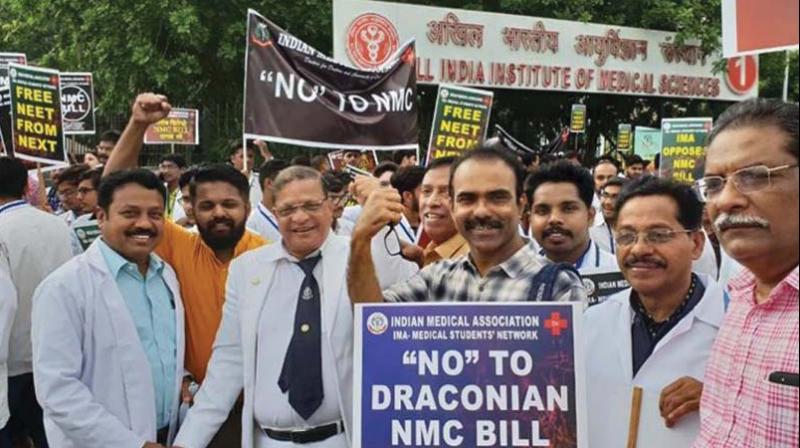NMC bill: Not quite what the doctor ordered
The bill seeks to annul the Indian Medical Council Act of 1956.

Over the years, there have been several issues with the functioning of the Medical Council of India (MCI), especially with regard to its role as a regulatory body, its composition, allegations of corruptions and a lack of accountability. The MCI was dissolved in 2010. The Modi government considers the National Medical Commission bill one of its biggest reforms. The bill seeks to annul the Indian Medical Council Act of 1956.
On August 1, the Rajya Sabha passed the controversial National Medical Commission Bill 2019, proposing sweeping reforms to medical education amidst a storm of protests by the medical fraternity. The Rajya Sabha has introduced two new amendments to the bill, which will be referred to the Lok Sabha. The bill proposes that the MCI be replaced with the NMC, which will then become the regulatory body for medical education. NEET will continue to be the entrance examination.
The bill proposes that the “final year MBBS exam be treated as an entrance test for post graduation and a screening test for students who graduate in medicine from foreign medical colleges.”
NMC moves away from a system of repeated inspections of infrastructure and focuses on outcomes rather than processes. This is a big step towards prevention of corruption in the name of granting licenses and updating infrastructure. It also provides for a bridge course for Ayush doctors – and stresses "enhancing the interface between systems of medicine” between Allopathy, Ayurveda, homeopathy, unani and so on.
The World Health Organization prescribes a doctor-to-patient ratio of 1:1,000. India has a doctor-patient ratio of 1:1,596. This means for every 1,000 people seeking medical treatment there is less than one doctor (0.62). The situation is worse in rural areas.
The planning commission says that there is a shortage of 600,000 doctors in the country. Only 40,000 MBBS graduate every year from over 500 Medical colleges. It requires 15 yrs OR some 7000 more medical colleges. At Rs 250Cr per medical college, the cost of new medical colleges will be an astronomical 1,750,000Crs.
The Bill allows a bridge course for the practitioners of AYUSH to enable them to prescribe modern medicines at a level notified by the central government, in order to bring Aayush-qualified doctors into the mainstream. Many allopathy doctors, on the other hand, have no interest in going to rural areas. There is a sort of crisis in healthcare delivery in these parts of the country. This was the reasoning behind the bridge course. However, it was overwhelmingly rejected by IMA.
Under the new bill, states can only "advise" the NMC. But the Council can choose not to accept that advice. However, no medical college will be set up without the state government's permission. MCI didn't have the power to regulate fees. The new commission, in contrast, is envisaged with the power to determine fees in 50% private medical college seats.
The central govt has the overriding powers over the NMC. As per the Bill, of 25 members proposed for the NMC, only five would be elected which means the non-elected members would be either government officials or those nominated by the government.

